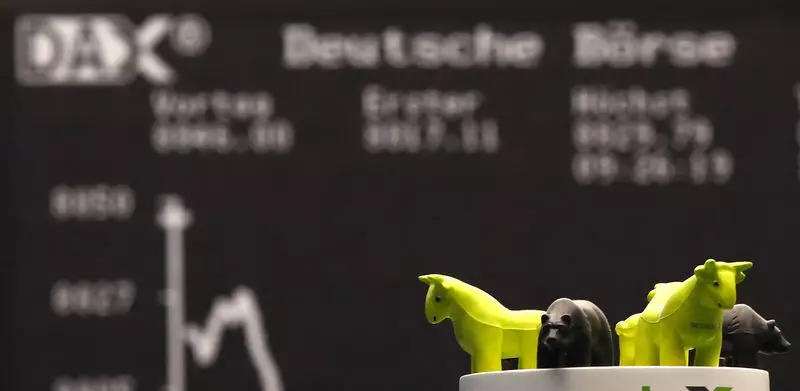As 2024 draws to a close, European stock markets displayed subtle fluctuations, reflecting a mix of profit-taking and cautious sentiment among investors. On the final trading day before the New Year holiday, major indices experienced minimal shifts, with the DAX in Germany remaining stable, the CAC 40 in France declining slightly by 0.1%, and the FTSE 100 in the UK falling by 0.3%. This minor drawback is not unexpected, as investors often reassess their positions at year-end, seeking to capitalize on gains accrued over the past twelve months.
Overall, this year has been characterized by a moderate upward trend within European markets. The pan-European STOXX 600 index is projected to achieve a gain of around 5.5%, with standout performances from Germany’s DAX, which has surged over 19%, and the UK’s FTSE, which has climbed 5%. Conversely, the CAC 40 has lagged behind, witnessing a decline of 2.6%. This uneven performance underscores the diverse economic conditions affecting different regions across Europe.
Inflation Concerns and Central Bank Dynamics
A key topic influencing market movements this week is the recent data on inflation rates across Europe. The latest figures revealed that Spain’s annual EU-harmonized inflation rate escalated to 2.8% in December, up from 2.4% in November. This uptick in inflation poses challenges for the European Central Bank (ECB), which recently reduced interest rates in an effort to counteract stagnant economic growth in the region. ECB Governing Council member Robert Holzmann indicated that, although interest rate hikes are not anticipated in the near future, the timeline for further cuts may be extended due to the resurgence of inflation pressures.
The European corporate landscape continues to navigate these macroeconomic shifts. For instance, Siemens Healthineers experienced a decline of 1% in its stock prices after news emerged regarding the company’s reassessment of its majority stake in its medical technology division. Such corporate decisions can create ripple effects in the market, influencing investor confidence and stock valuations.
Market Impacts from Global Oil Trends
In tandem with the performance of equities, crude oil prices also faced pressure as the year neared its end. On Monday, U.S. crude futures (WTI) fell by 0.1% to $70.53 per barrel, while Brent crude experienced a similar dip, settling at $73.69. These declines reflect broader concerns regarding demand, particularly with China’s slowing economic growth, a major driver of global oil consumption. Predictions suggest that both oil benchmarks are poised to conclude the year with significant losses, with WTI down approximately 1.5% and Brent down over 4%.
This interplay of economic indicators, including inflation, corporate earnings, and commodity pricing, paints a complex picture for investors as they prepare for 2025. With the global economic landscape continuously evolving, understanding these dynamics will be crucial for strategic investment decisions in the coming year. As markets prepare to close on Tuesday, the anticipation for New Year’s trading reflects both optimism and unease as stakeholders consider the implications of this year’s performance on future market trajectories.

